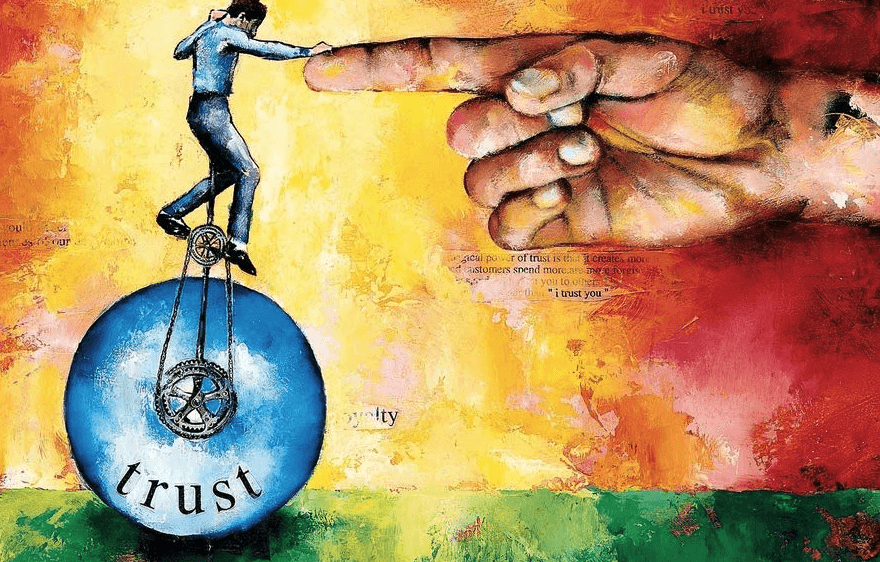|
I struggled to figure out how to start this blog post. To me, trust is such a huge topic that I got stuck in my desire to lay a solid, yet easily comprehended foundation to what we are going to engage over the next several posts.
So, I concluded to quit fixating over doing this perfectly and just roll out what is in my mind regarding it. So here goes…..
There are more books written on trust than I care to think about. A lot of people have a lot of thoughts about trust. Stephen Covey’s recent book on The Speed of Trust sold over a million copies and has some very useful info in it.
But, for my money, there are two giants in the field of trust:
- what trust is
- what creates trust
- what erodes trust
- and what repairs trust when it is damaged
But, for our purposes, I will put what I have learned on this topic, both from others and from experience, into my particular blender and share that.
But, first, let’s explore some background on how inescapably essential trust is in all relationships and cultural connections.
From John Gottman (during an interview):
“(In my experience) What I found was that the number one most important issue that came up with couples is trust and betrayal. I started to see their conflicts like a fan opening up, and every region of the fan was a different area of trust. Can I trust you to be there and listen to me when I’m upset? Can I trust you to choose me over your mother, over your friends? Can I trust you to work for our family? To not take drugs? Can I trust you to not cheat on me and be sexually faithful? Can I trust you to respect me? To help with things in the house? To really be involved with our children?
Trust is one of the most commonly used words in the English language-it’s number 949. When I went to Amazon.com and typed in “trust,” I was surprised that 36,000 books came up. Now, a lot of these were business books, on how to set up a financial trust. But most of them were really about trust in relationships, and trust in general.
On PsychInfo, the database that psychologists use to do a literature review, there were 96,000 references to “trust.” And it turns out that when social psychologists ask people in relationships, “What is the most desirable quality you’re looking for in a partner when you’re dating?”, trustworthiness is number one. It’s not being sexy or attractive. It’s really being able to trust somebody.
Through my research, I’ve found that trust is essential to healthy relationships and healthy communities-and I’ve started to learn how we can build trust.
Why trust is important
Trust isn’t just important for couples. It’s also vital to neighborhoods and states and countries. Trust is central to what makes human communities work.
In a recent line of research on “social capital,” sociologists ask people: “Do you think people can be trusted?”
This research shows there are low- and high-trust regions of the United States. Nevada is a very low-trust region. (Nobody seems to be very surprised by that.) Minnesota is a very high-trust region. The Deep South is a very low-trust region.
We see similar disparities internationally. In Brazil, two percent of people say they trust other people. In Norway, 65 percent say they trust other people.” (End of Gottman quote)
It is worth it to reflect upon how impactful trust is in our individual lives, relationships, communities, workplaces and societies.
More in our next blog post… In the meantime, I encourage you to contemplate and reflect upon what your relationship with trust is.
- Who do you trust? Have you always trusted them?
- Who do you not trust? Did you used to trust them? What happened?
- Who do you trust now that you used to not trust? What happened to change the mistrust to trust?
|

